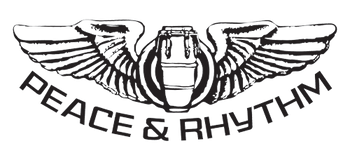
She was the lady who swings the band. Mary Lou Williams may be not be considered a major jazz star but her contributions as a pianist, arranger, composer, teacher, radio host and historian are immense.
She has been a professional since she was a little girl in Pittsburgh and was playing with Duke Ellington's Washingtonians at 13. She married saxophonist John Williams in 1927 and formed a band with him in Memphis before they both joined Andy Kirk's Twelve Clouds of Joy in Oklahoma City in '29, with whom Mary Lou made her first recordings as the band's pianist, composer and arranger, effectively running the band.
She started performing and recording solo piano in the early '30s, as well as arranging for the bands of Earl "Fatha" Hines, Benny Goodman, Jimmy Lunceford, Louis Armstrong, Cab Calloway and Tommy Dorsey. She spent some of the '30s jamming in the historic Kansas City scene with Ben Webster, Charlie Parker, Lester Young and others. (Geri Allen played her in the Robert Altman movie Kansas City).
In '42 she was back in Pittsburgh in a band with her second husband Shorty Baker and Art Blakey before she took off to go East with the Ellington organization. During the bebop era she was in NYC, recently divorced, and jamming with (and mentoring) Bird, Thelonious Monk, Dizzy Gillespie, Miles Davis, Tadd Dameron and others. She started hosting a weekly radio show, playing solo gigs and writing for the Gillespie band. She also saw her large scale orchestral work Zodiac Suite hit the stage in 1945.
She was in Europe and then semi-retirement in the '50s until she rejoined the Gillespie band at the '57 Newport Fest. Her career in the '60s found her music exploring deeply spiritual themes (often with dancers) while she also formed her own publishing company and record label. She helped found the Pittsburgh Jazz Festival and made some TV appearances.
In '77 she recorded a duo concert with Cecil Taylor followed by appearances at the White House and Carnegie Hall. She also spent several years teaching at universities and with youth choirs. This pioneering woman of jazz lost a battle with cancer in 1981. Her music covered boogie-woogie, swing, bebop, modal and gospel and her activism was an essential part of her story.
Said Duke Ellington: "Mary Lou Williams is perpetually contemporary. Her writing and performing have always been a little ahead throughout her career. Her music retains, and maintains, a standard of quality that is timeless. She is like soul on soul."
